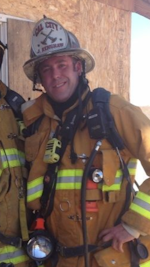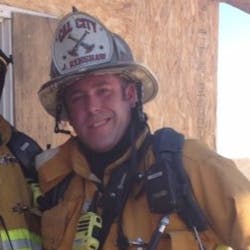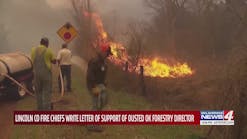A quick internet search can provide multiple news articles, links and stories about fire chiefs who either are in or have been in turmoil with their elected officials or municipal managers. Often, this led or can lead to some form of discipline for the chief—or, even worse, termination. This type of adversity that fire chiefs can face might be out of their control, with circumstances that they didn’t see coming (i.e., hidden agendas, egos, power struggles, retaliatory measures, and plain disdain or dislike for the chief).
The other side has fire chiefs being their own detriment to their career when it involves the political arena. It could be that they weren’t properly groomed or mentored for the position or that they became so immersed in what’s familiar or comfortable to them—daily operations, station life, etc.—that the challenge of working with elected officials or the municipal manager becomes unmanageable, and they choose to avoid it at all costs.
In my July 2021 article in Firehouse Magazine, “Answering the Call Inside City Hall,” I emphasize how important that it is for a fire chief to be able to work and collaborate with elected officials, municipal managers and others who are within their municipal government. I also give tips, tricks, hints and systems that a fire chief can implement to be successful. The following digs a little deeper and focuses on the mindset and approach that fire chiefs must have when it comes to some potential career-enders. Ways to continue to work toward keeping their name out of the headlines and following a path for continued professional—and agency—success are included.
Communication
Throughout a fire chief’s career, the word “communication” is heard and used thousands of times. The obvious use of this word often comes in conversations about an incident scene, particularly the radio traffic that occurred.
Communication also is very important for chiefs in a different context—when working with politicians and managers.
Communicating is the best way to educate and to engage all of the bosses who are above you in the chain of command. To ensure that they don’t start to speculate or buy in to rumors, you must keep them informed on a variety of topics and events and answer their questions. The lack of this information might cause them to create their own narrative, because they might have zero knowledge on the subject but have a lot of people inquiring of them.
Your willingness to share without being asked is a great way to open up the lines of communication, to make it a two-way street. Failure to do this can cause you to be accused of not being open, of withholding and/or of not being transparent.
Pick your battles
A fire chief who I worked for in the past once used the phrase “This isn’t the hill that I’m going to die on.” We were discussing an issue that he was having with a council member. I was shocked by this statement, because the persistent attacks via outrageous questions and accusations were starting to take a toll on him.
I asked him, “Why don’t you defend yourself?” He explained to me that it wasn’t worth the battle and that he preferred to save his proverbial troops and equipment for another day. Little did I know that his troops and equipment meant so much more than just what he was referring to in that statement. He was referring to the political clout and support that he garnered with other council members and the manager. He also was referring to the members of the community who backed him 110 percent and who slowly were losing faith in the council member who was making the attacks. He also was referring to the members of the department who witnessed numerous times the fire chief put himself between them and that council member, being hit by the shrapnel that was thrown their way.
This was one of the first times that I was able to witness how the mind of fire chiefs work, when they must show great restraint and self-control, even when their professionalism and reputation are being tarnished.
This fire chief was able to maintain his composure and remain out of the news headlines, which would have discussed the ongoing battle. He was able to fight another day, ultimately winning the war.
Change
Change is inevitable in the fire service. When we look back on our profession’s history, we have come a long way from just fighting fires with horse-drawn engines to now being the “jacks of all trades,” responsible for EMS, hazardous materials, technical rescue, etc.
Within your local government, change can happen a number of ways, but nothing can affect a fire chief more than a shake-up in the governmental hierarchy, either through an election or a change in managers. Fire chiefs who have been in the position for a few years likely have found some allies on their elected board and might even have a good working relationship with their manager. These fire chiefs likely don’t want to see these other people go, but it can—and, I assure you, will—happen eventually.
Instead of just accepting the change and complaining about it, focus on embracing it. The new visions, goals and attitudes that will come in might be better for you and your agency in the long run, particularly if you have plateaued and are in a management funk. Take what you perceive as a negative and make everything about it positive, because your attitude and work production will reflect it.
Generate harmony
Once the damage is done, it’s impossible to undo it. Fire chiefs must work diligently to not only be productive and to keep their department at a level to deliver excellent service, but they must think outside of the box. They must shift their mindset to one that encompasses more than just operations and budget numbers but how to harmoniously work with those who are above them in their chain of command. The smallest bit of turmoil can make for a great news story with an eye-catching headline.

Jared Renshaw
Jared Renshaw has more than 20 years of experience in the fire service. He started his fire service career with the Fairview Volunteer Fire Department in South Fayette Township, PA. Renshaw also served with career departments in South Carolina and California and since 2015 has served as the fire commissioner with the Western Berks Fire Department in Berks County, PA. He holds a bachelor's degree in fire service administration and is designated as a Chief Fire Officer through the Center for Public Safety Excellence (CPSE). Renshaw serves as a Peer Reviewer for the CPSE and as a member of the board of directors for the Pennsylvania Fire and Emergency Services Institute. He is a member of the advisory boards for Firehouse and Firehouse Expo.






